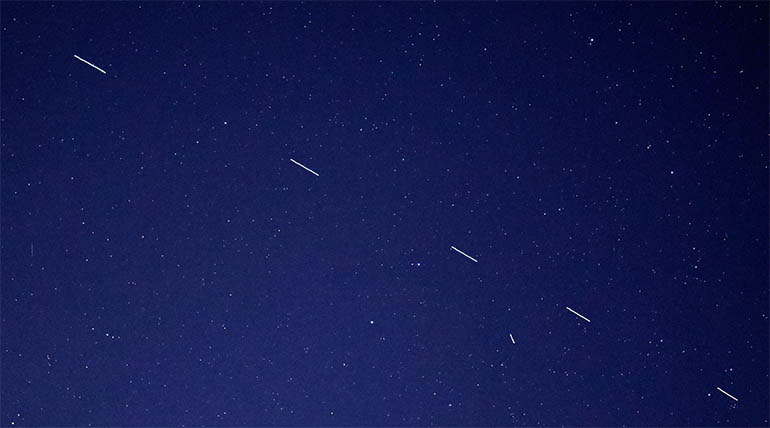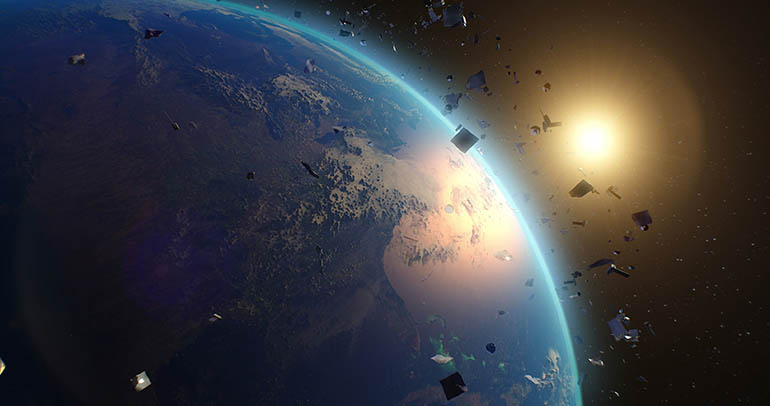Regulating to ensure space activities are safe and secure
On this page
MBIE regulates the use of all launch vehicles, facilities, payloads, and high-altitude vehicles from New Zealand under the Outer Space and High-altitude Activities Act 2017 (the Act). A key purpose of the Act is to facilitate the development of New Zealand’s space industry and provide for its safe and secure operation. This includes preserving New Zealand’s national security and national interests and adhering to our international obligations relating to space activities.
A review was completed on the operation and effectiveness of the Act in May 2022. The review’s report concluded that New Zealand’s regulatory regime operates effectively and is well regarded by entities that engage with it.
Statutory Review of the Outer Space and High-altitude Activities Act 2017 [PDF, 820 KB]
Objectives
The New Zealand government regulates to ensure New Zealand space activities are safe and secure. This means:
- Facilitating the safe and secure use of emerging space technologies from New Zealand
- Clarifying what New Zealand space activities are inconsistent with the national interest
- Promoting and protecting New Zealand’s interests through permitting space technologies
Facilitating the safe and secure use of emerging space technologies from New Zealand
The review report highlighted emerging technology areas where future regulation may be required. This included constellations. Some of the relevant policy considerations here are set out below.

A satellite internet constellation transiting the night sky over the Pacific coast of California in 2019.
Satellite constellations
What are they?
A satellite constellation is a group of artificial satellites that work together as a single system. They are now a growing proportion of all satellites being developed, manufactured and launched globally.
What are their uses?
Large satellite constellations (which can sometimes comprise hundreds or thousands of satellites) are used for a range of reasons including navigation, broadcasting, taking images of the Earth, or providing internet access to communities that have no access.
Are there concerns?
There are some concerns about the impact of constellations, including effects on night sky observation by scientists and astronomers – observation may be interrupted by frequent or bright satellites passing over observation points at viewing times. This may also affect astro-tourism, such as the Aoraki Mackenzie International Dark Sky Reserve. A paper submitted to the United Nations Committee on the Peaceful Uses of Outer Space makes recommendations about keeping skies dark and quiet for science and society.[15]
Are there benefits?
New Zealand is well placed to benefit from the growth of constellations, due to our broad-based space sector that covers manufacturing, launching, tracking and data. All of these functions are needed to build and operate constellations. Some applications of constellations also have the potential to directly benefit New Zealanders - such as improving internet access for rural communities.
Mātauranga Māori
There is a deep connection between mātauranga Māori and space, including through tātai arorangi (knowledge of outer space), whakapapa (genealogical origins being linked to the beginning of the universe) and wairuatanga (the spiritual connection between the Earth and the universe derived from Māori cosmology). Broad mātauranga Māori views received through this consultation will also inform future constellations policy work.
Future regulations
New Zealand has previously launched satellite constellations – but not those which have comprised hundreds or thousands of satellites. Although an operational policy is in development for constellations, future regulation may be required to give more certainty and transparency on our approach to the public and regulated parties.
Clarifying what New Zealand space activities are inconsistent with the national interest
The Minister for Economic and Regional Development (the Minister) is responsible for the licencing and permitting of all New Zealand space activities.
Mandatory requirements in the Act
Before the Minister approves the launch of a payload from New Zealand, there are a number of threshold tests that need to be met, including but not limited to: establishing that the activity can be carried out safely, compliance with our international obligations,[16] and provision of a suitable orbital debris mitigation plan.[17] The full assessment process can be found on the MBIE website.[18]
National interest, a final safeguard in the Act
However, even if the threshold tests are met, the Minister may decline a payload permit if s/he is not satisfied that a payload’s operation is in the national interest. The Minister may take into account, when considering the national interest: economic or other benefits to New Zealand; risks to national security, public safety, international relations or other national interests; risks that cannot be mitigated by conditions of the licence or permit; and any other relevant matters (e.g. whether the activity represents frivolous use of space). As part of policy to inform the language in the Act, Cabinet has agreed to principles which inform the consideration of national interest for space activities, as well as setting out some specific activities that are not in New Zealand’s national interests.
Foreign government applicants, aligned with strategic interests
Our diplomatic relations with other nations can provide New Zealand with a level of confidence in the integrity of information provided by foreign government applicants. For example, our deep and long-standing security relationship with the United States, supported by a legally binding treaty, the Technology Safeguards Agreement (TSA),[19] gives us a high degree of trust in U.S. space operations, ensuring we are provided with full information to check that any payload is consistent with New Zealand law, our international obligations, national security, and our national interests.
To date, no payload permit or licence applications have been declined on the grounds that they are contrary to New Zealand’s national interest. The range of activities that have been authorised so far offer direct and indirect benefits to New Zealand’s economy as well as our international space and security relations.[20]
The statutory review of the Act did not suggest any changes to the national interest provisions in the Act or its regulations but did recommend that the Minister considers developing more specific national interest criteria.
National interest principles
These principles inform the consideration of national interest for New Zealand space activities:
Responsibility
That space activities from New Zealand should be conducted with due care and in such a way as to promote an orbital environment where actors avoid causing harm or interference with the activities of others.
New Zealand's value and interests
Space activity from New Zealand should uphold the values supported by New Zealanders and align with broader policy settings.
Safety
Space activities from New Zealand should be conducted in a way that does not jeopardise human safety, including the safety of people in space.
Sustainability
New Zealand should promote sustainable space practices that preserve the benefits of space for future generations.
Activities against the national interest
The following activities are considered not to be in New Zealand’s national interests (i.e. the responsible Minister will not authorise such activities):
- Activities that contribute to nuclear weapons programmes or capabilities.
- Activities with the intended end use of harming, interfering with, or destroying other spacecraft or space systems on Earth.
- Activities with the intended end use of enabling or supporting specific defence, security or intelligence operations that are contrary to government policy.
- Activities where the intended end use is likely to cause serious or irreversible harm to the environment.
Promoting and protecting New Zealand’s interests through permitting space technologies
As one of the world's few launching states, New Zealand has the opportunity to promote and protect our interests globally, including through facilitating the regulation of space technologies in New Zealand that align with our values, and actively participating in policy and regulatory fora on responsible space behaviour, removing international debris, global space traffic management and situational awareness.
Active debris removal
The growing quantity of space debris poses a danger. Active debris removal technologies present innovative and responsible solutions to these issues. There is increasing international interest in such technologies, as well as complex legal issues regarding the use of them (including whether consent of the owner of the debris is required). It is likely that future domestic regulations will be required to facilitate the adoption of these technologies in New Zealand, which will aim to protect our national security interests in a responsible, sustainable space environment.
Our regulatory system will need to keep pace with other emerging technologies such as these, and targeted stakeholder engagement will be needed to address future regulatory policy development. Ongoing consultation with Māori will also be required to understand the intersection between te ao Māori and the use of emerging technologies in Aotearoa New Zealand and from space.

[15] Scientific and Technical Subcommittee. Recommendations to keep dark and quiet skies for science and society. United Nations Committee on the Peaceful Uses of Outer Space, 58th session, UN Doc A/AC.105/C.1/2021/CRP.17 (19 April 2021).
[16] New Zealand is party to several international space treaties that regulate space activities carried out from New Zealand such as the Outer Space Treaty (United Nations), the Radio Regulations (International Telecommunication Union) and the Convention on the Registration of Objects Launched into Outer Space (United Nations). New Zealand is also party to other international treaties that are relevant to space payloads, including treaties on disarmament, the environment and human rights.
[17] See: Orbital Debris Mitigation: Operational Policy [PDF, 223 KB]
[19] Agreement between the Government of New Zealand and the Government of the United States of America on Technology Safeguards Associated with United States Participation in Space Launches from New Zealand [PDF, 118 KB] (June 2016)
[20] Summary of payloads approved for launch
< Protecting and advancing our national security and economic interests | Promoting the responsible uses of space internationally >


